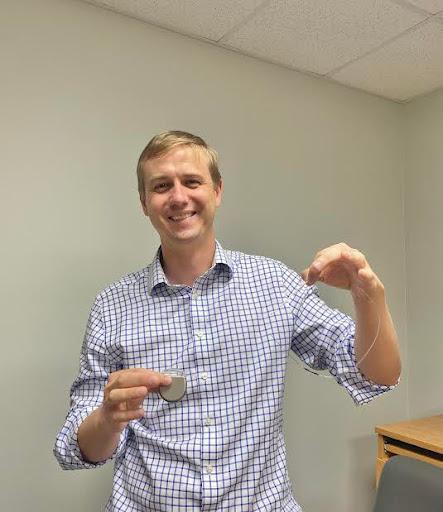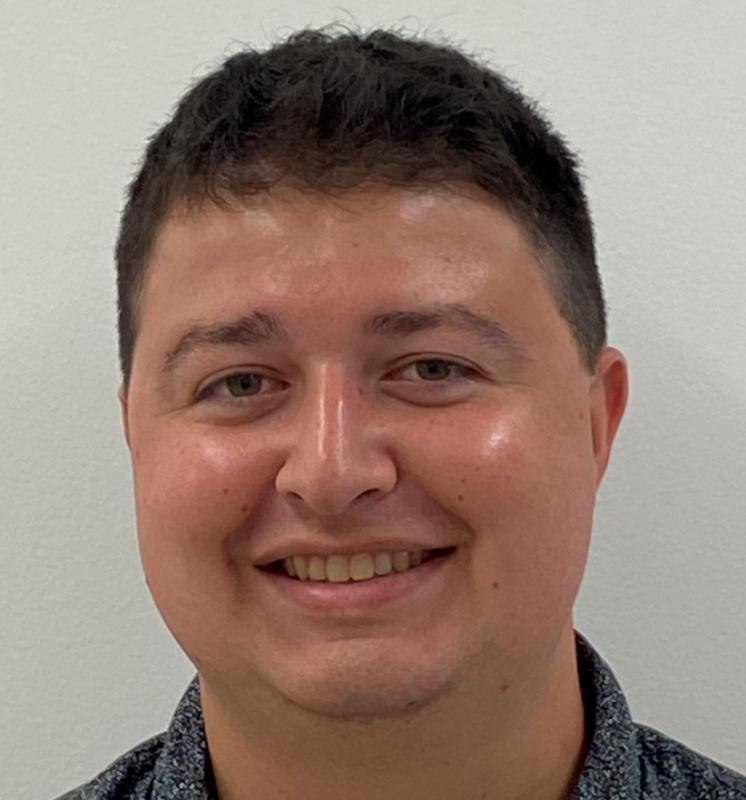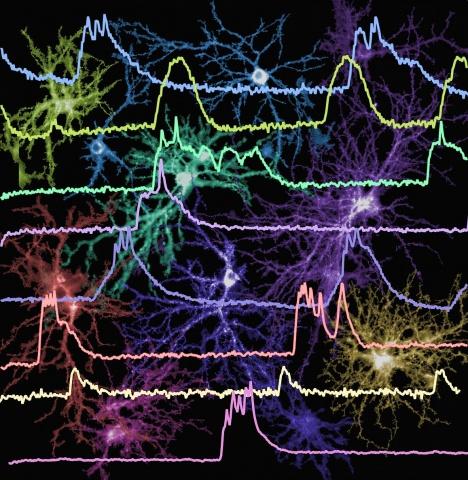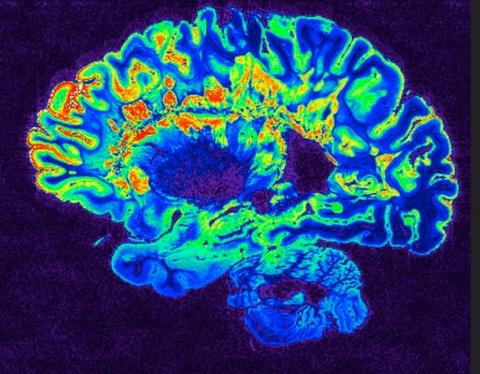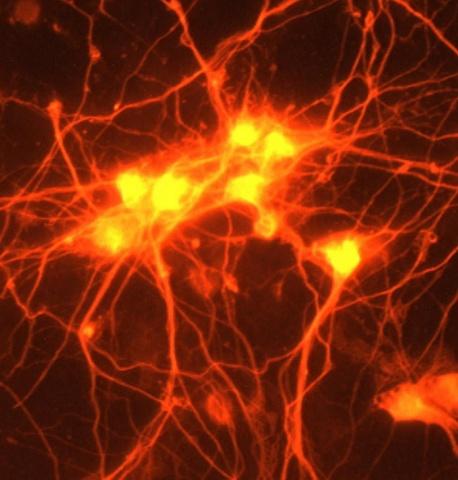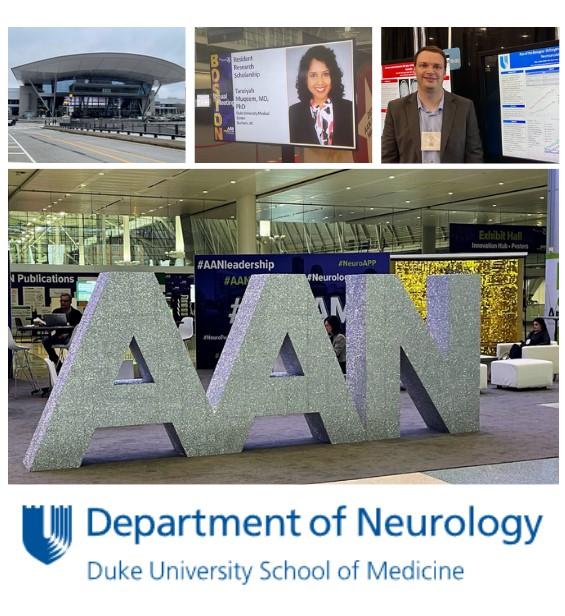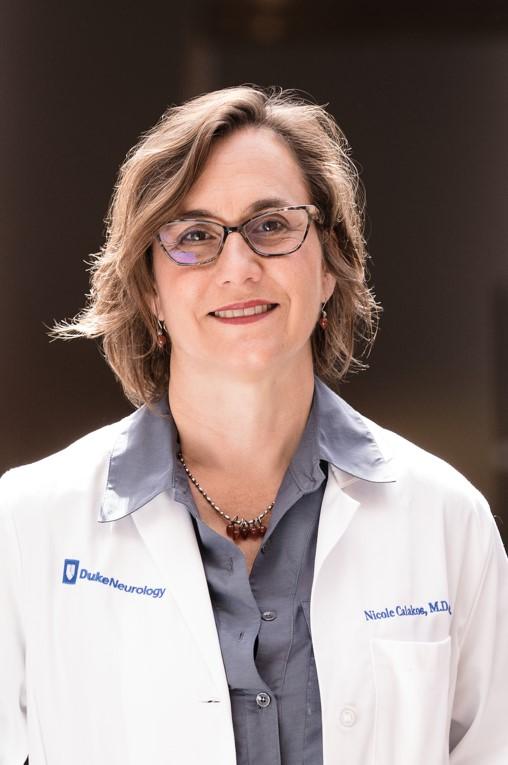Our Duke Parkinson's and Movement Disorders Newsletter provides free news, interviews, and resources for individuals with movement disorders and their care partners.
Sign up to receive the newsletter.
Duke Neurology Research Round Up, December 2023
What do a speech prosthetic that translates brain signals into speech, retinal scans that detect cognitive impairment, and a promising new form of genetic therapy for Parkinson’s and some forms of dementia have in common? They’re all examples of the 21 peer-reviewed journal articles authored members of the Duke Neurology Department published this November.
Postdoc Spotlight: Silas Buck, PhD
Silas Buck, PhD, first fell in love with neuroscience during the earliest days of his undergraduate career, when he became fascinated with the complex biological reactions that were responsible for even his earliest lab experiments. Buck pursued this passion through graduate school, studying how dopamine neurons become vulnerable to degeneration in Parkinson’s disease.
Fellow Spotlight: Brian Dahlben, MD, MSc
Brian Dahlben, MD, MSc, first became interested in neuroscience in high school after he read about phantom limb pain. He decided to pursue neurology and then movement disorders with the goal of developing close relationships with his patients and helping them live their best lives, and came to Duke as the first member of our newly expanded Movement Disorder Fellowship program.
Gift from Schilsky Foundation Expands Scope of Movement Disorders Fellowship at Duke
The Duke Neurology Department has expanded its movement disorders fellowship program to provide fellows with a research-immersive second year, thanks to a pledge from Dr. Randy Schilsky and his RMS Family Foundation. This support will allow our movement disorders fellows to extend their training beyond the first year, which is immersed in clinical training, and undertake research projects to advance our understanding of Parkinson’s disease and other movement disorders.
Duke Neurology Research Round Up, September 2023
A new blood-based test for Parkinson’s disease, improved monitoring techniques for epilepsy, and a chapter discussing the use of transcranial magnetic stimulation (TMS) as a noninvasive treatment for dystonia are just a few examples of the latest research from members of the Duke Neurology Department.
Duke Neurology Research Round Up, July 2023
A promising new therapy for brain tumors detailed in the New England Journal of Medicine and a validation of a popular stroke treatment for patients taking vitamin K antagonists published in JAMA are just two highlights of the 15 peer-reviewed journal articles authored by members of the Duke Neurology Department this June.
Duke Neurology Research Round Up, May 2023
What do analyses of stroke rehabilitation techniques, new therapeutic targets for jaw pain, and guidelines to help sleep apnea patients cope with runny noses have in common? They’re all subjects of articles published by members of the Duke Neurology Department this April. Read the summaries below to learn more about the nine peer-reviewed journal articles members of the Duke Neurology Department contributed to over the past 30 days, and find links to the original research below.
Duke Neurology at AAN 2023: Highlights from Boston
Members of the Duke Neurology Department shared their advances and insights in neurology education, health disparities, movement disorders, and other areas at the American Academy of Neurology’s (AAN) 75th annual meeting in Boston this week. This year, our faculty, staff, and trainees contributed more to the AAN than in any previous year, contributing to 20 posters and abstracts and six classes or sessions.
Calakos Receives 2023 ASCI Korsmeyer Award
The American Society for Clinical Investigation (ASCI) has awarded Nicole Calakos, MD, PhD, its 2023 Stanley J. Korsmeyer Award. The Korsmeyer Award recognizes outstanding achievements of ASCI members in advancing knowledge and mentoring future generations of life science researchers. Calakos received this award for her contributions to understanding basal ganglia physiology and its involvement in diseases such as compulsive behavior and movement disorders.
